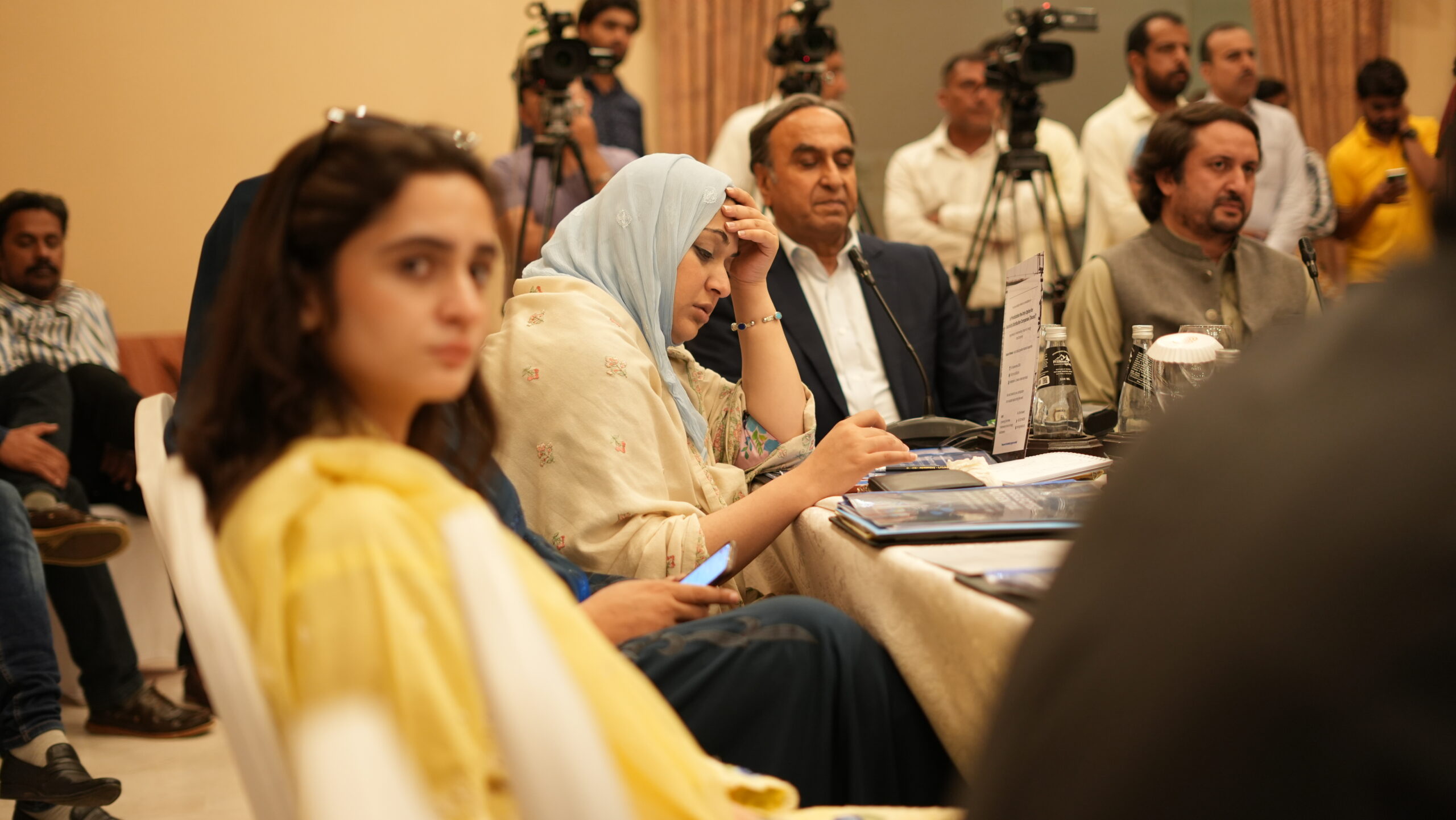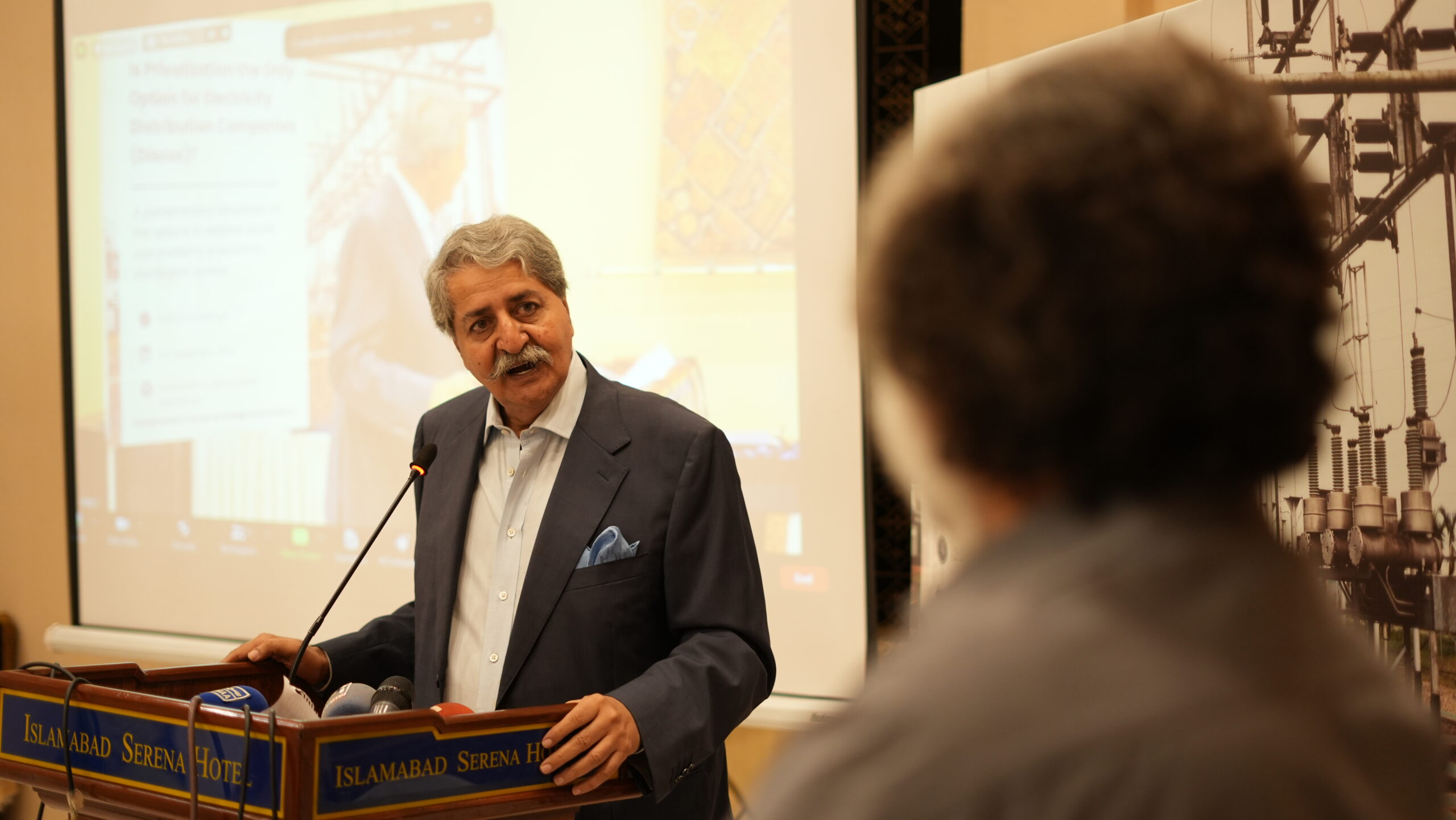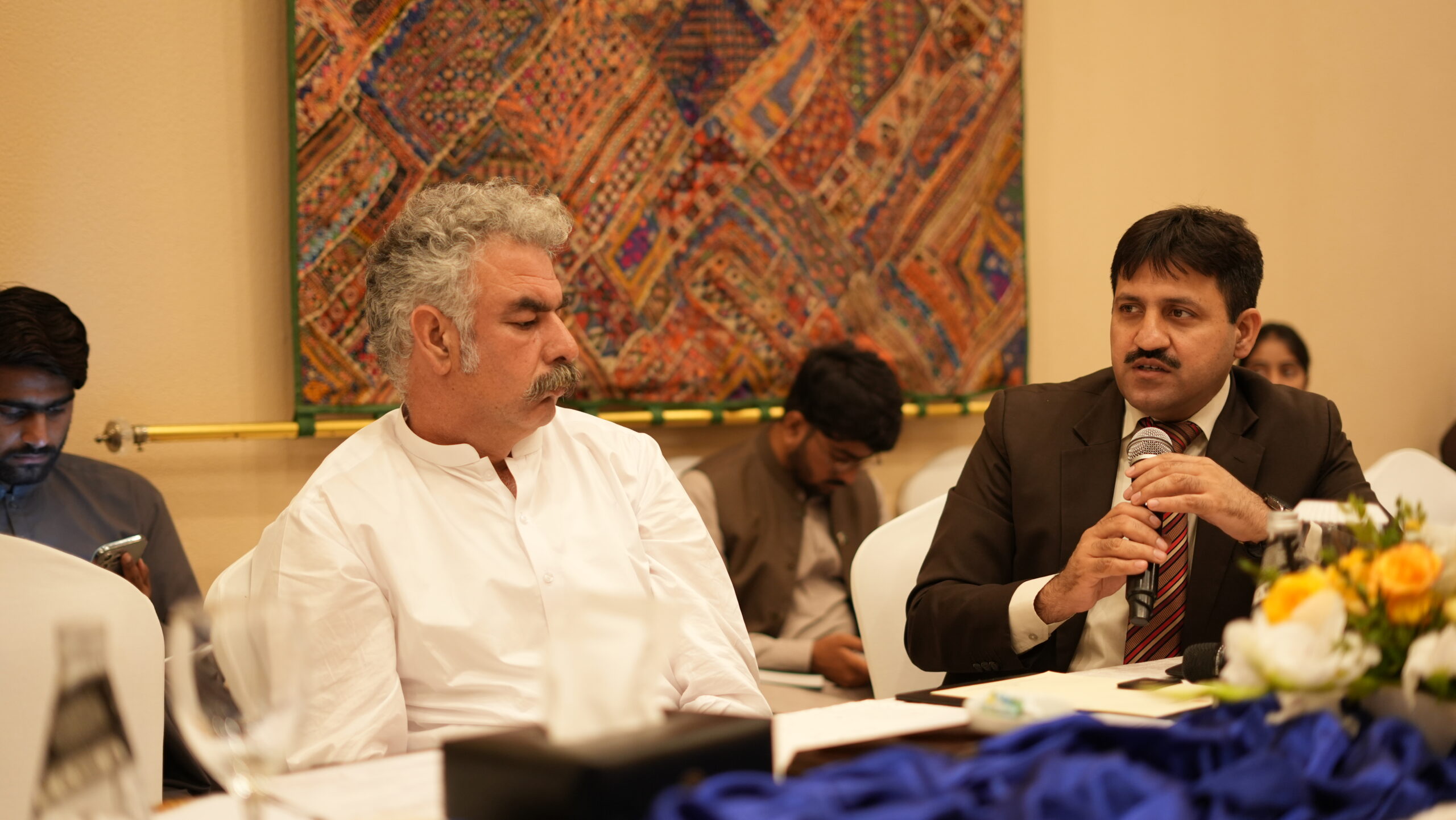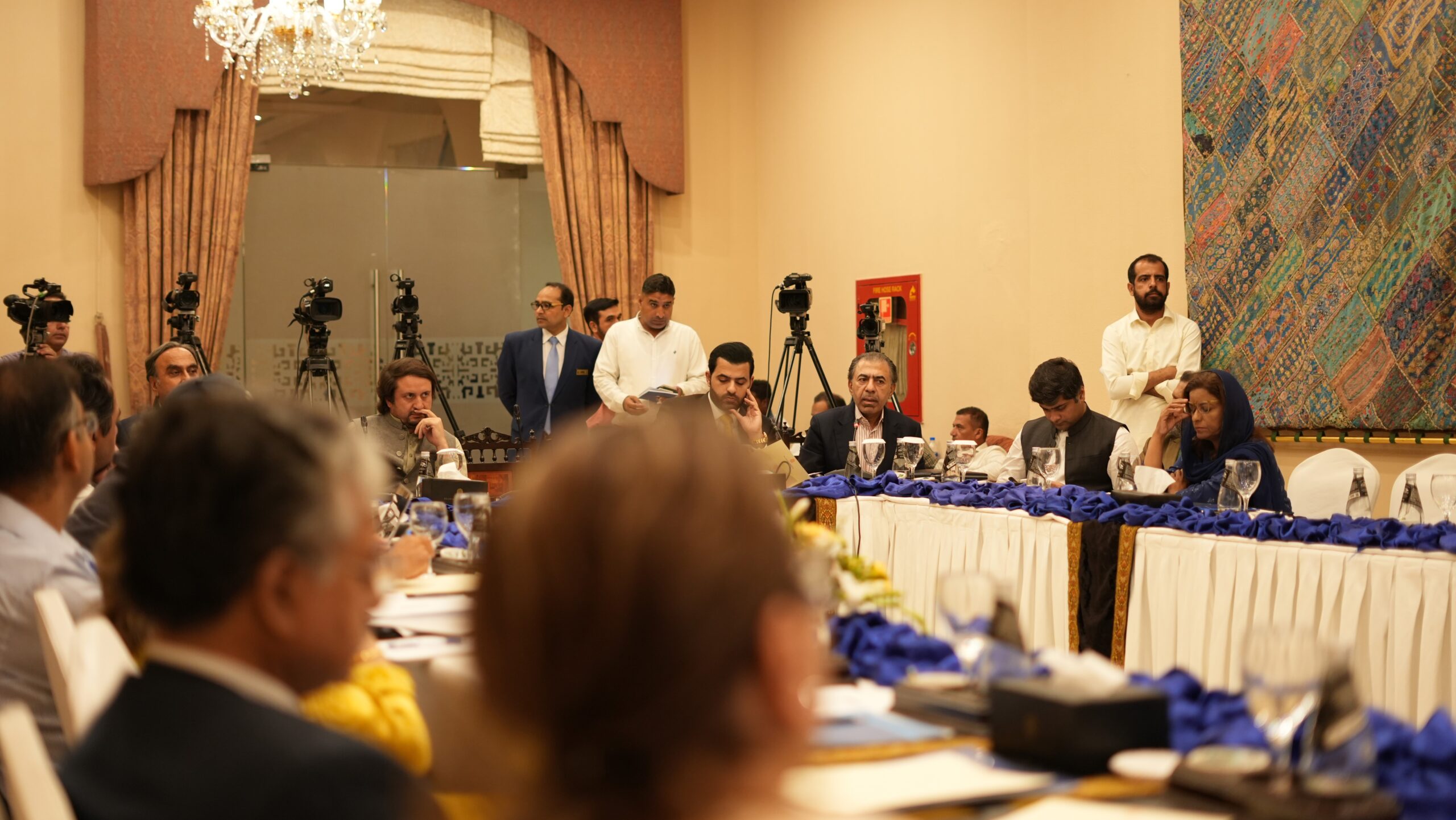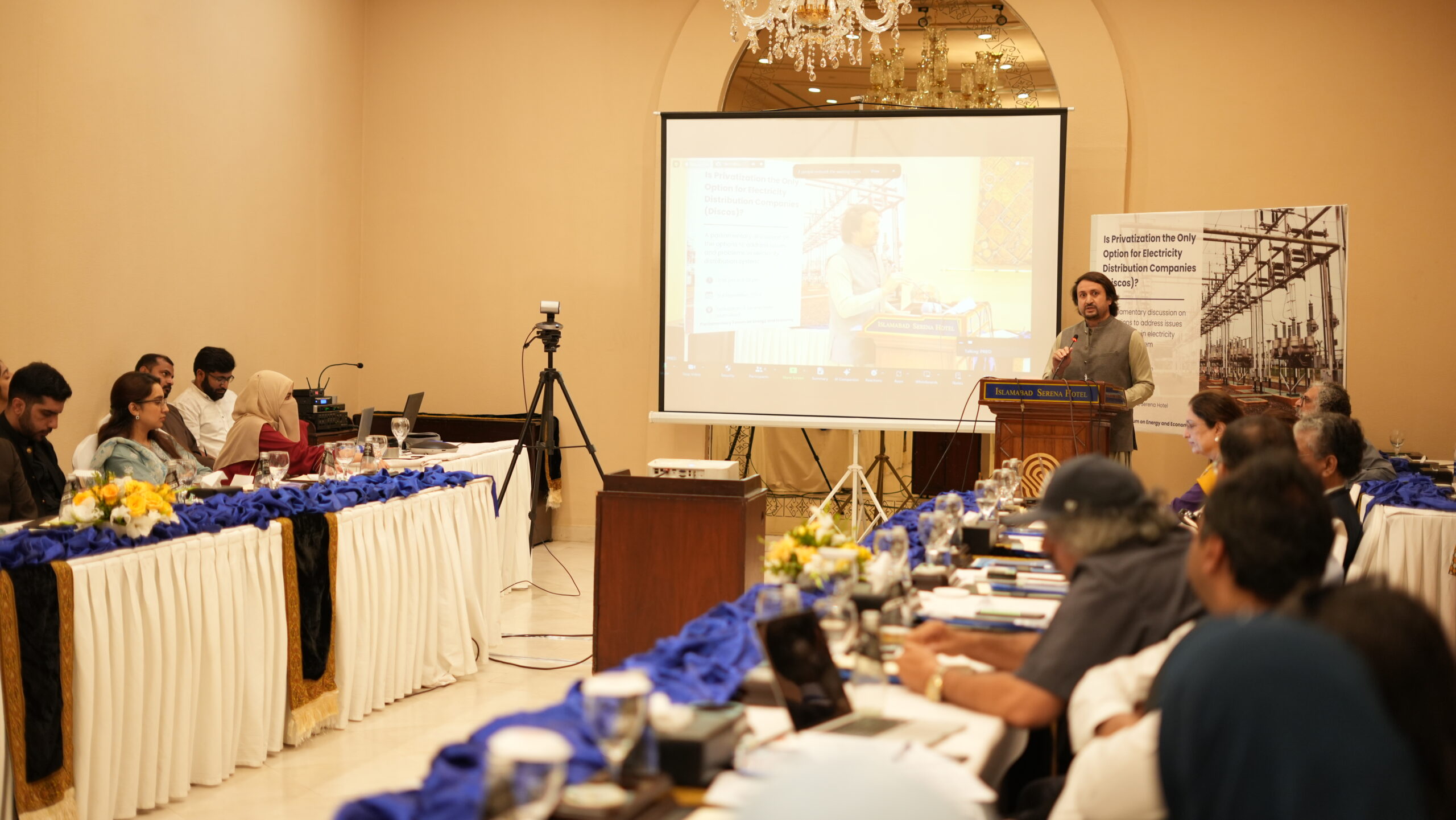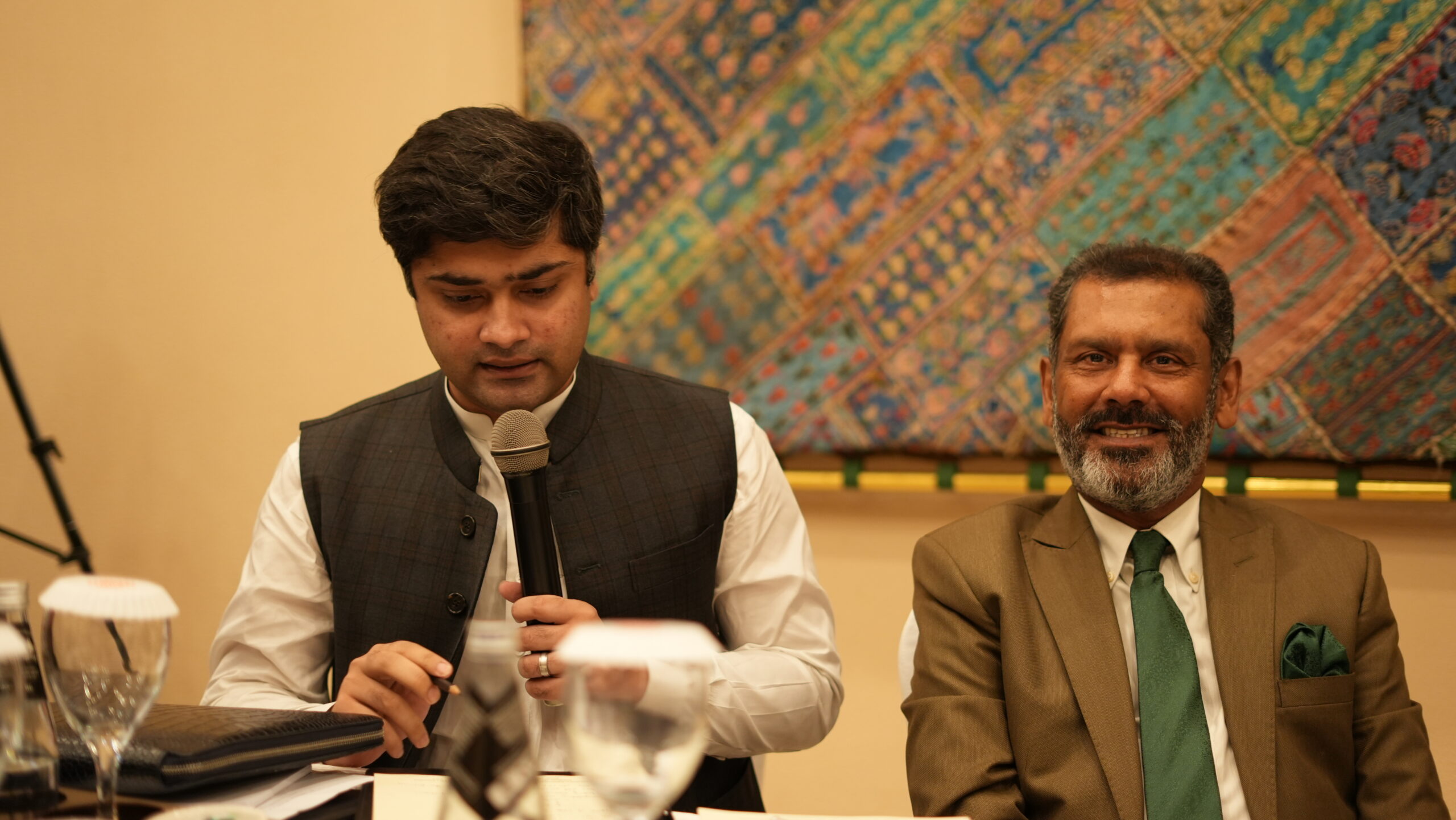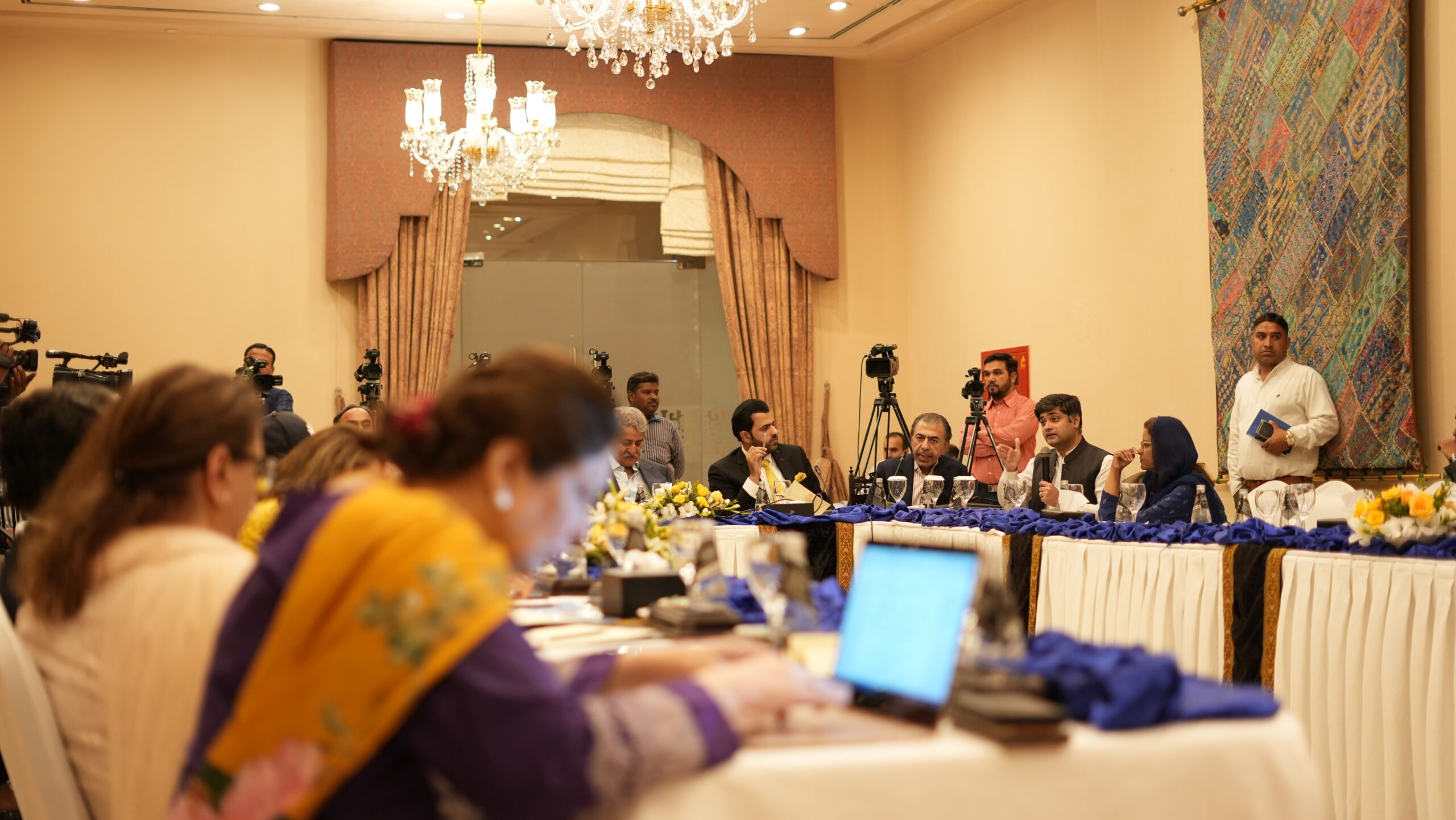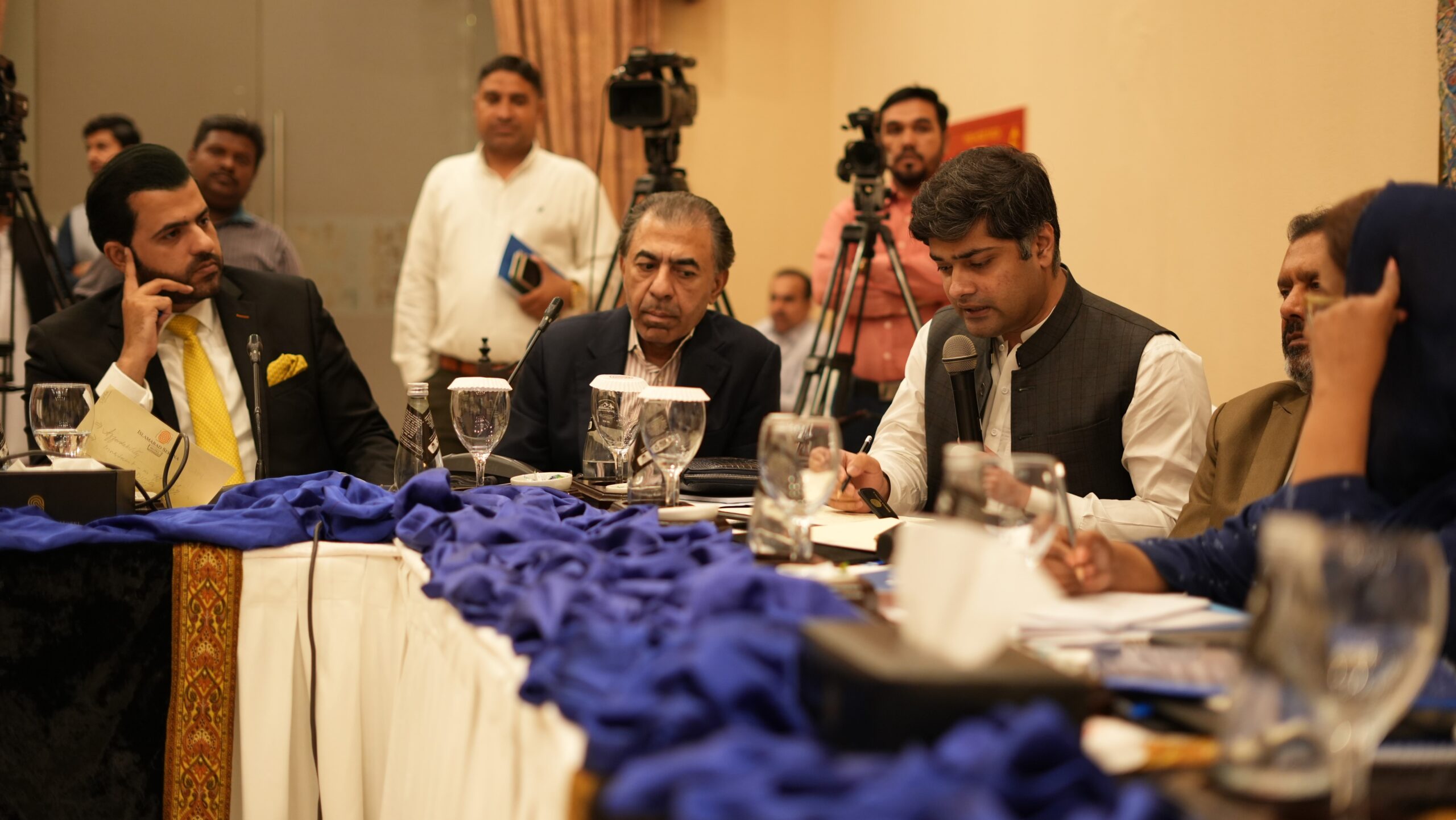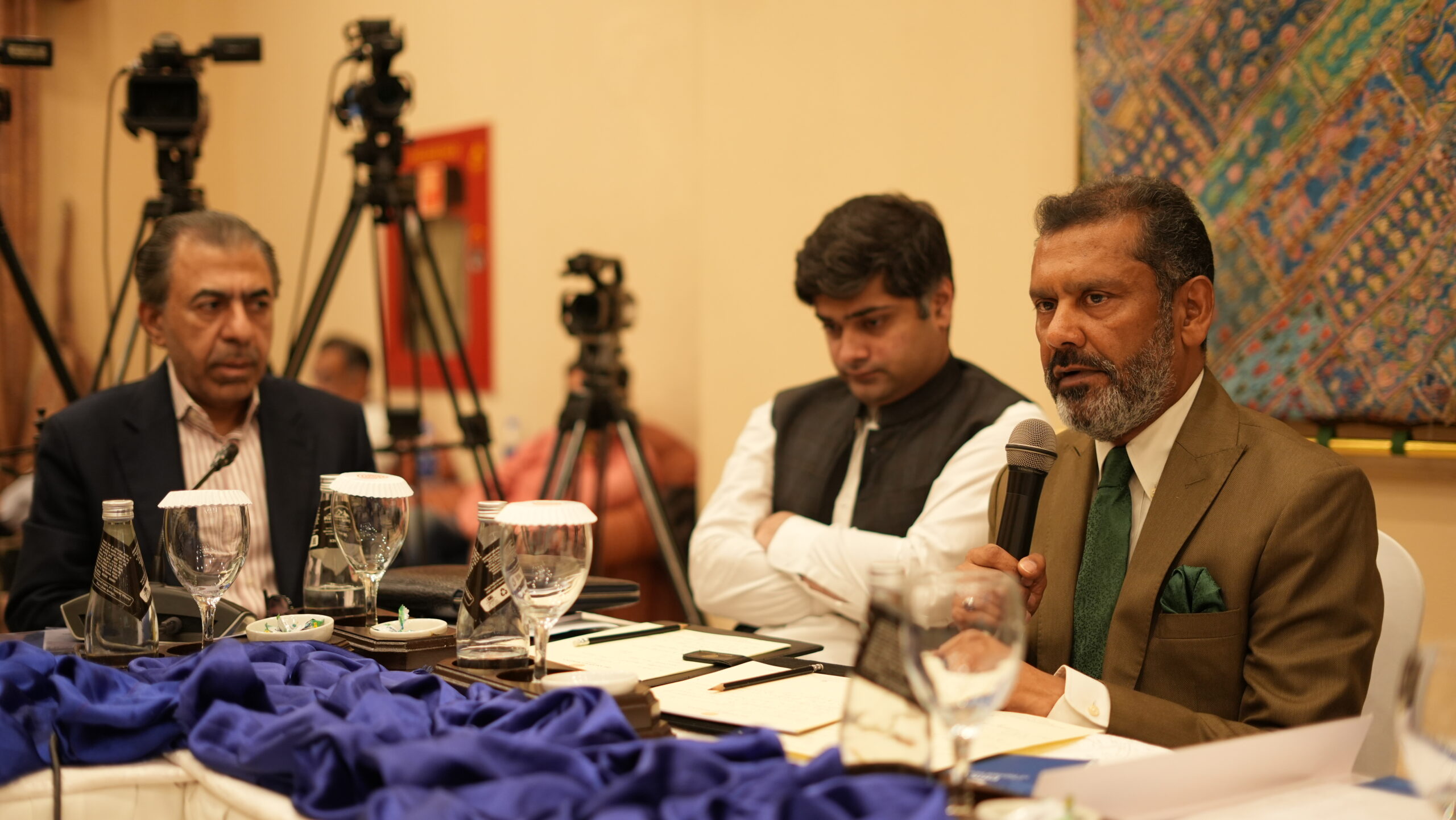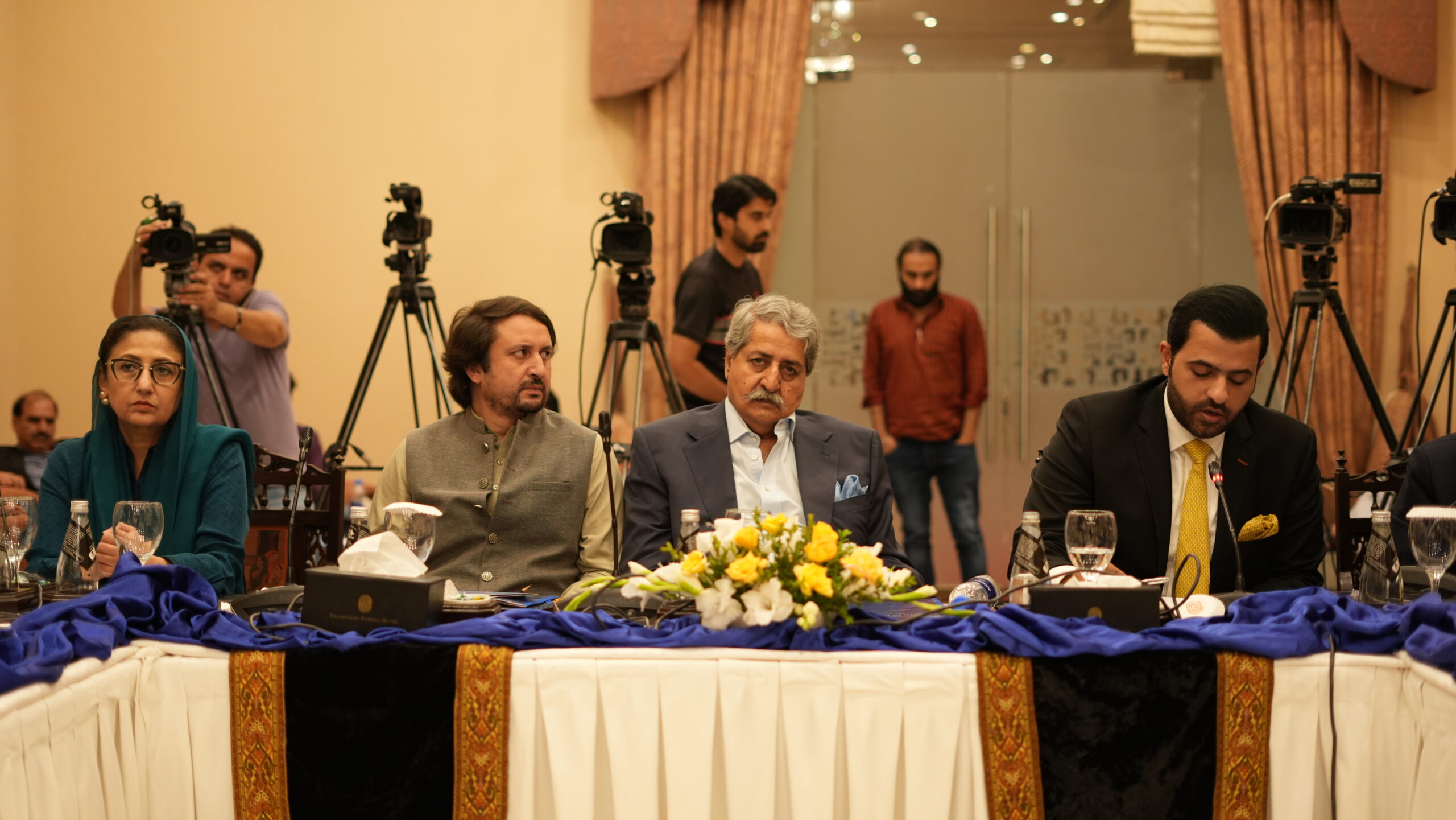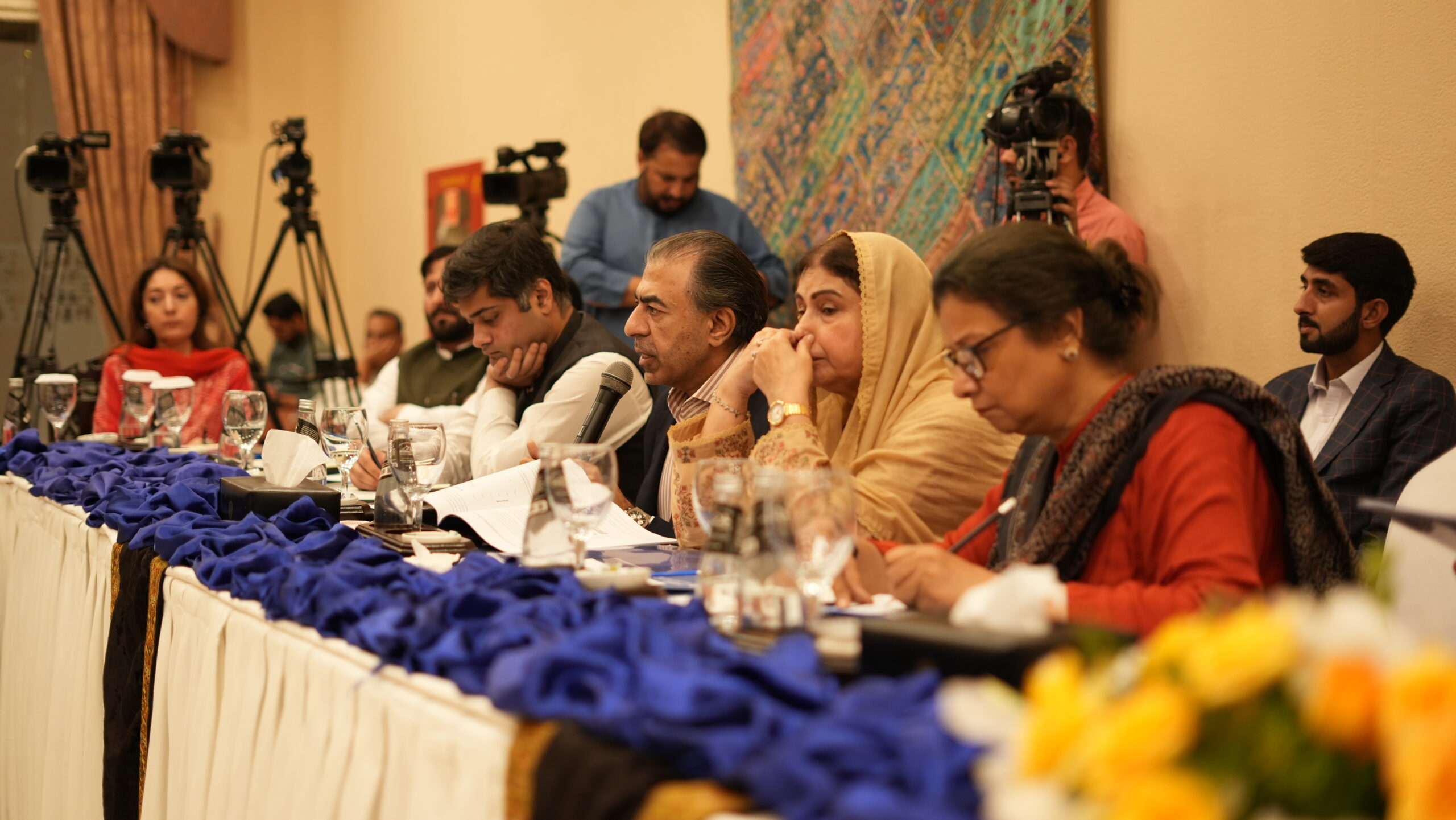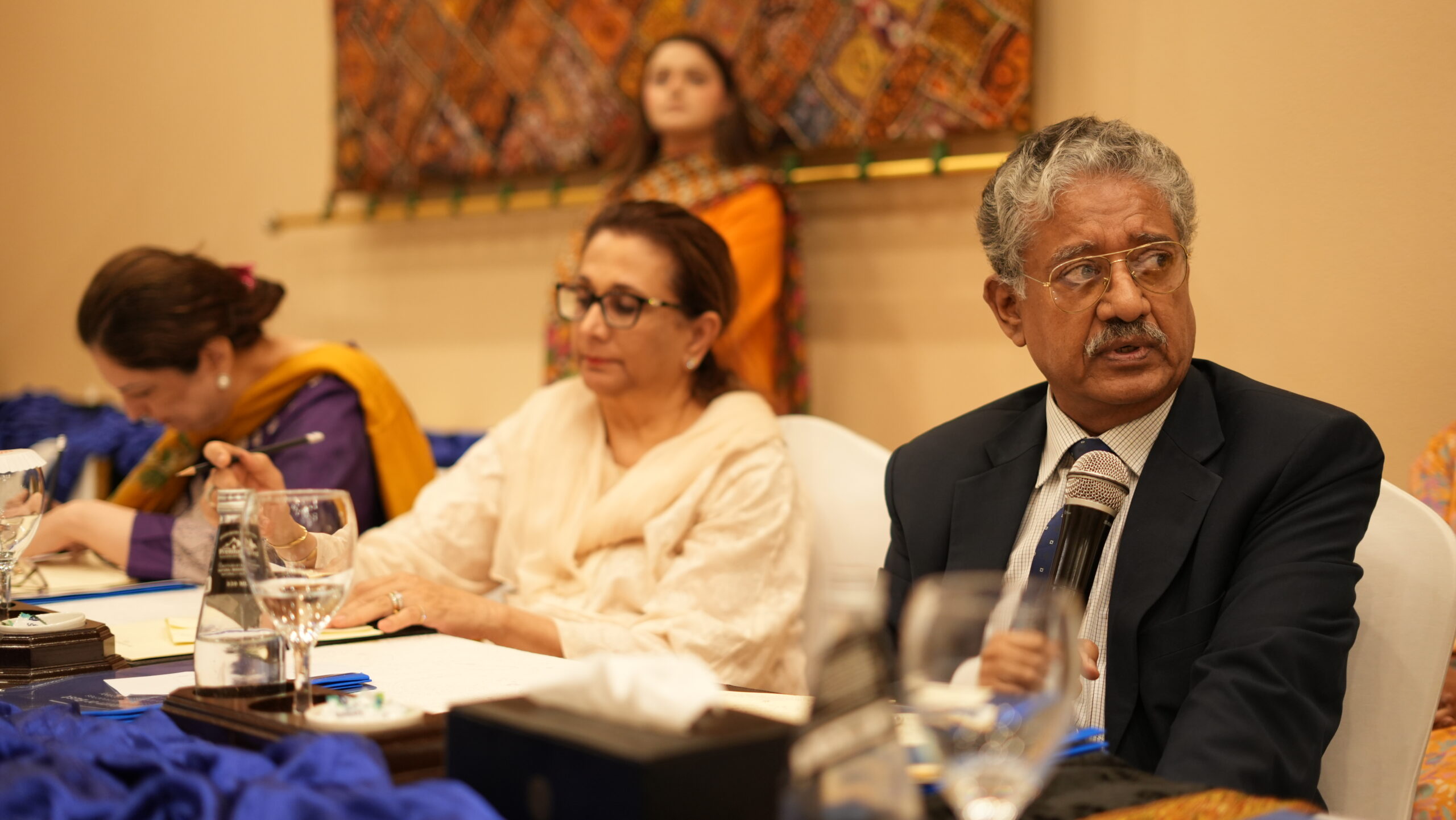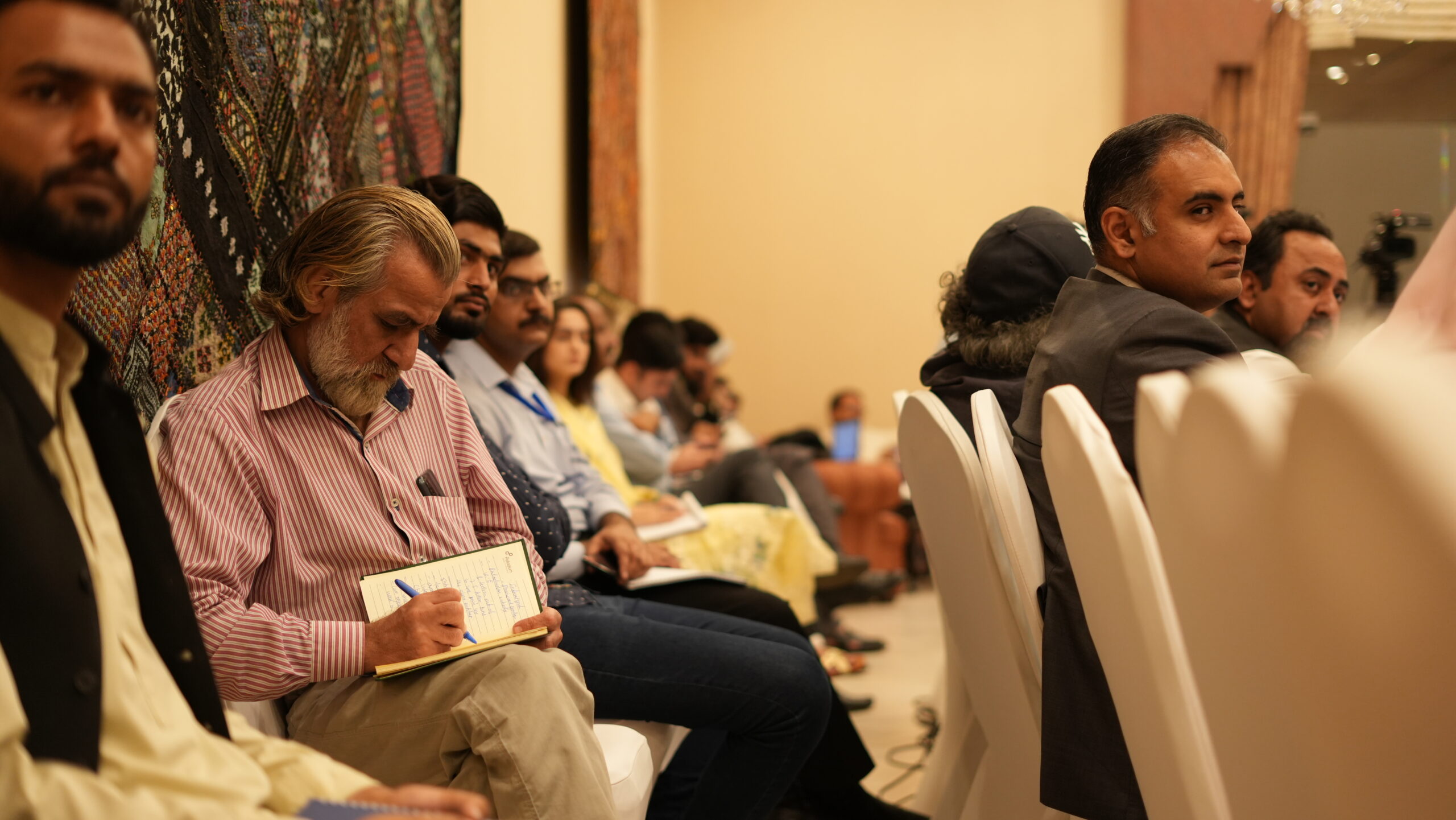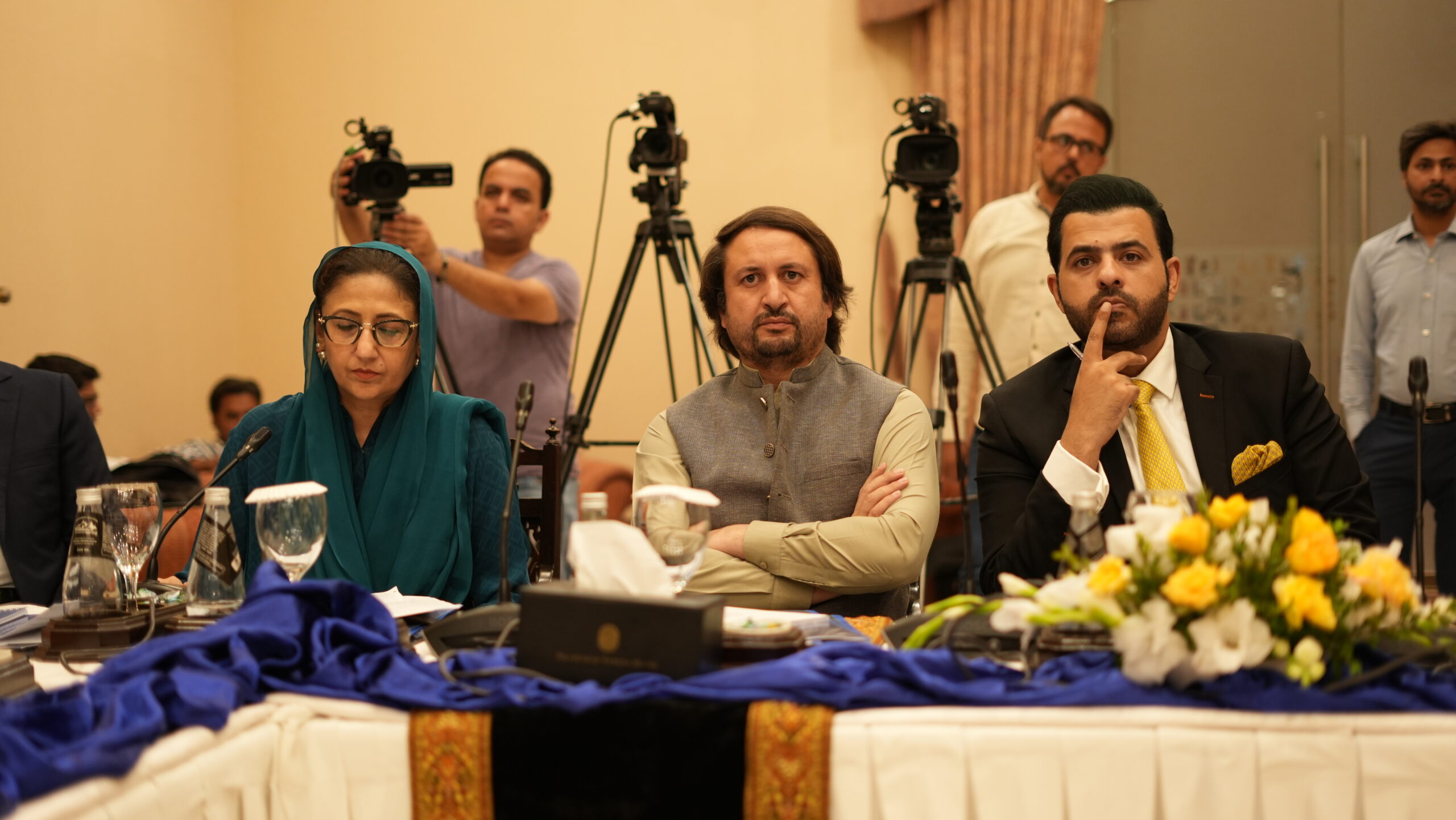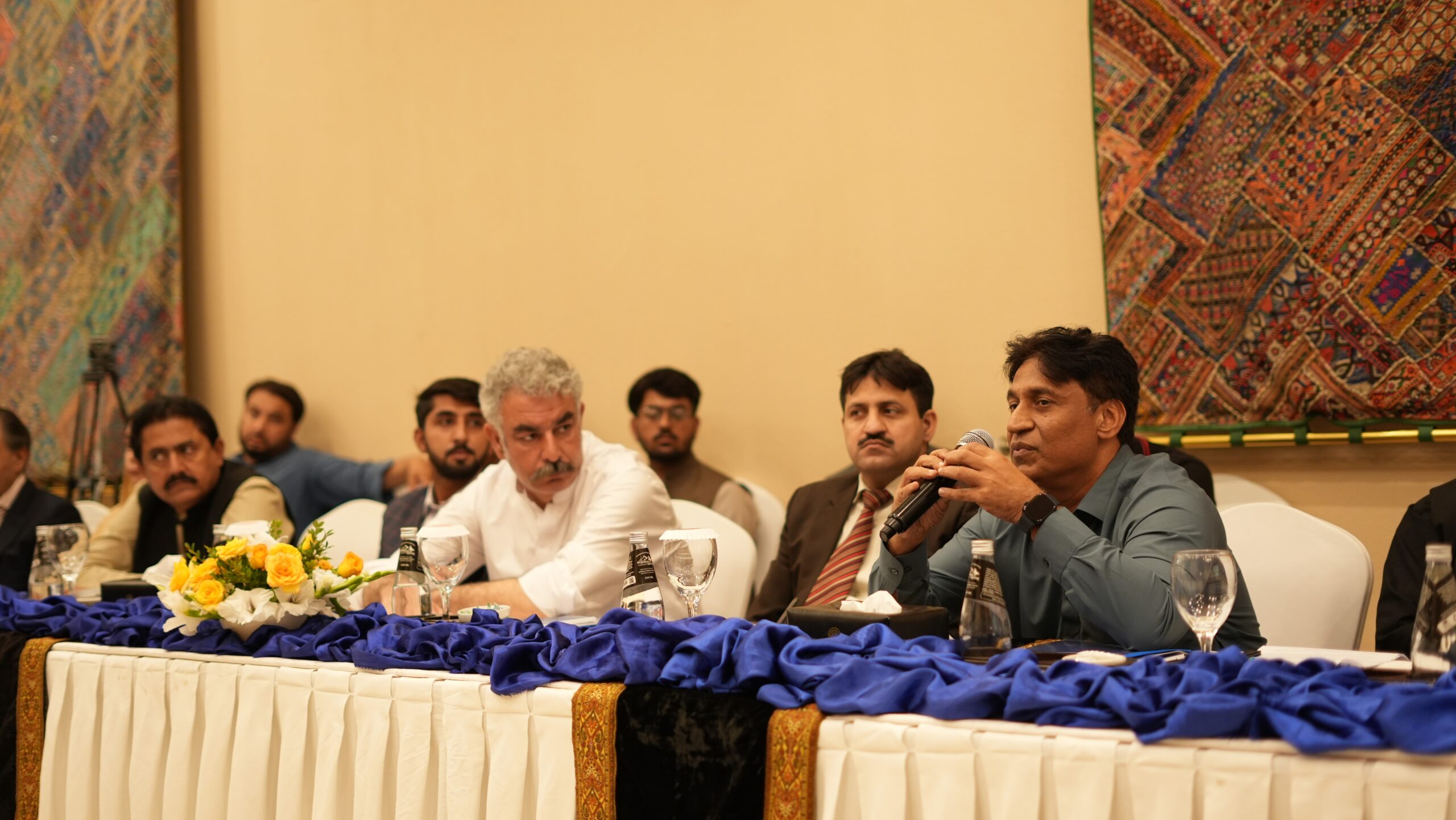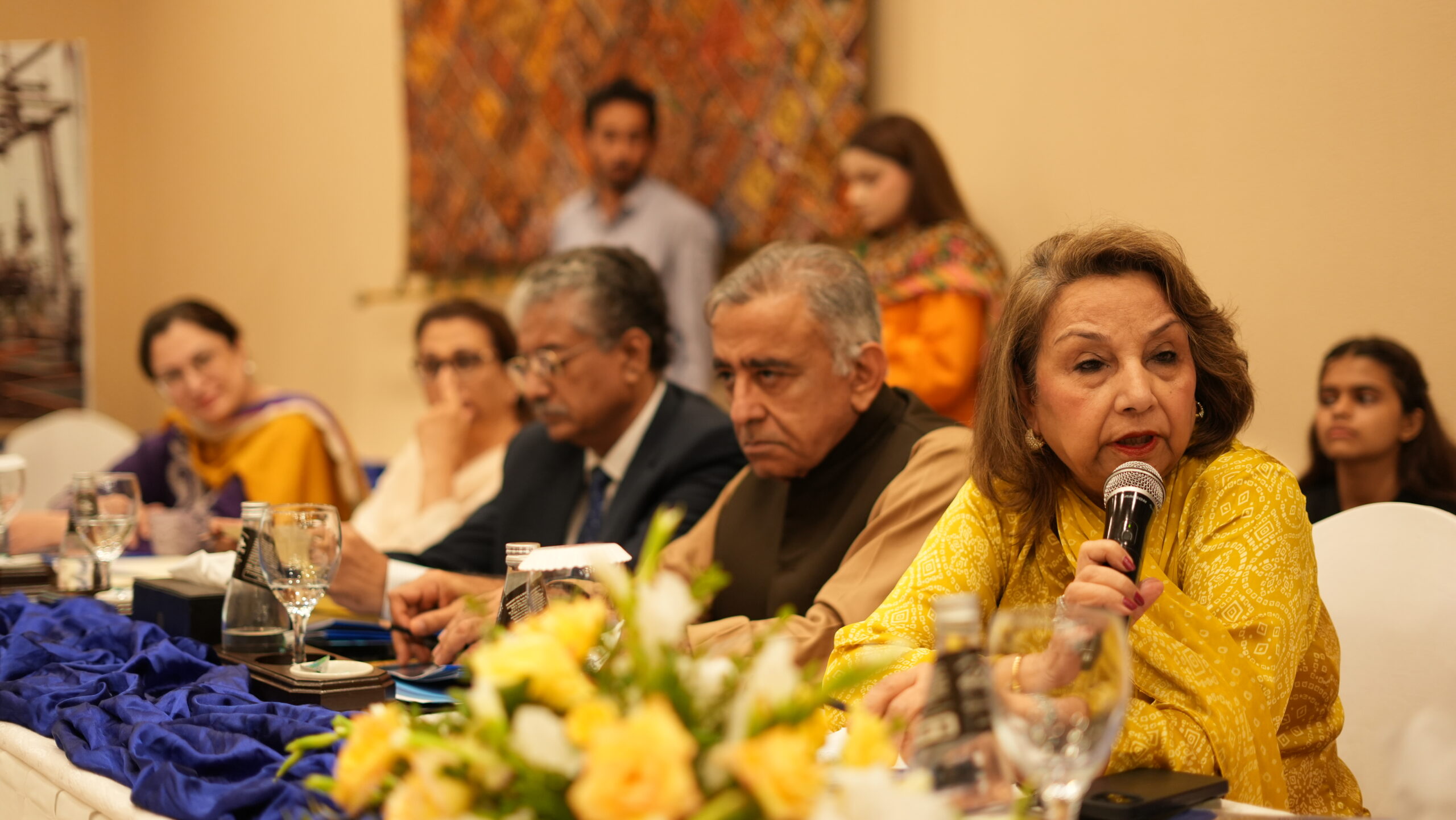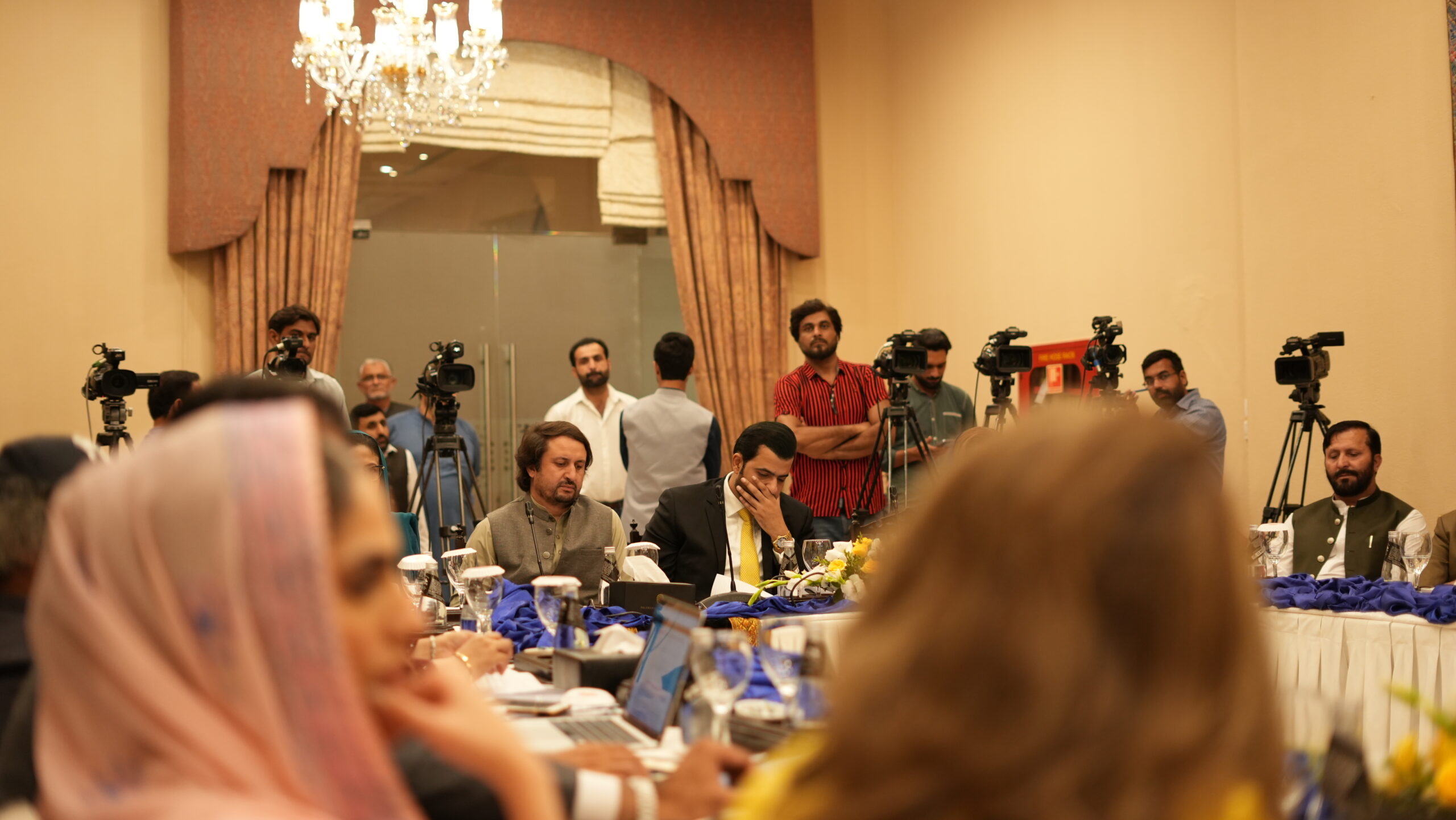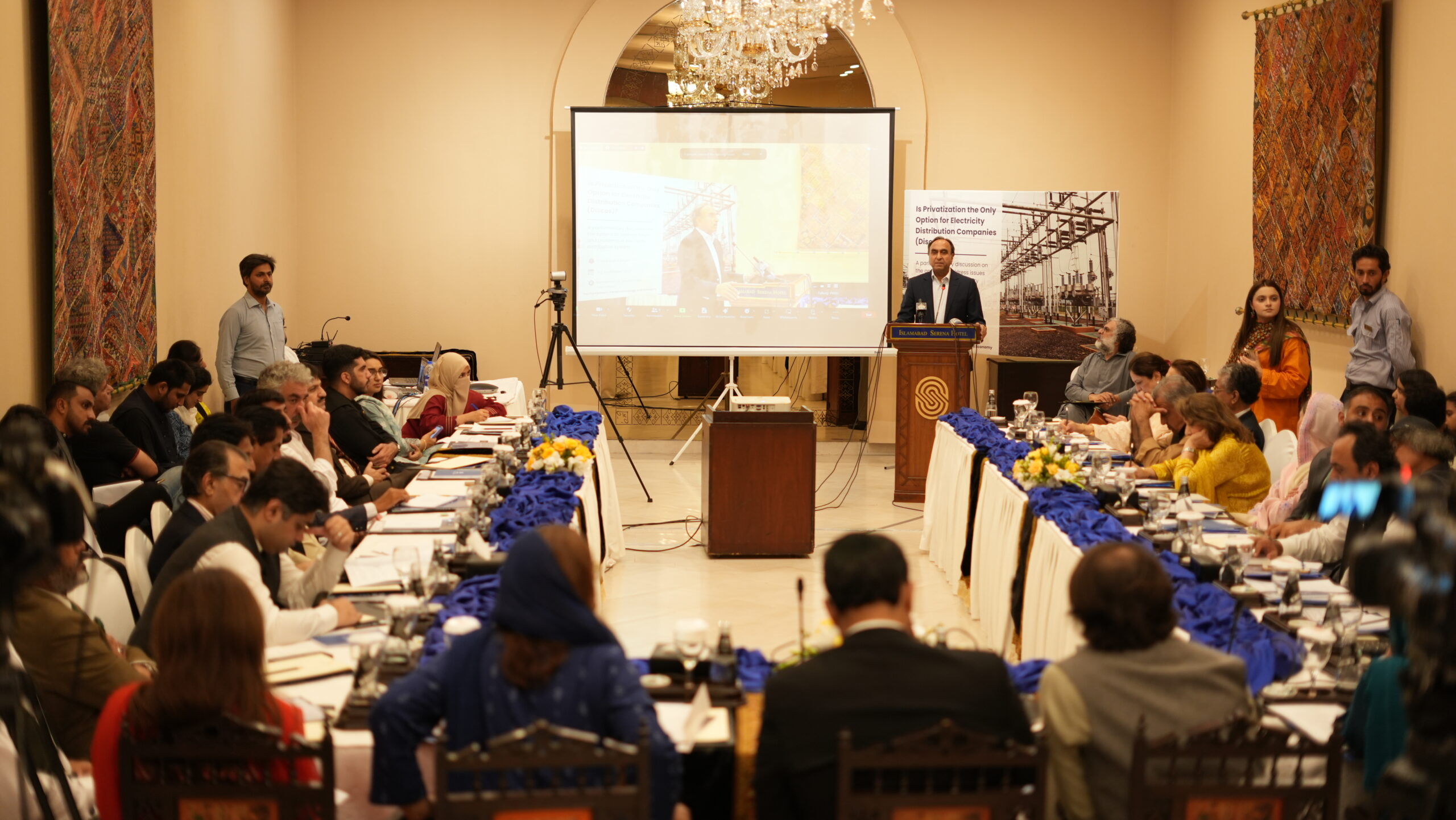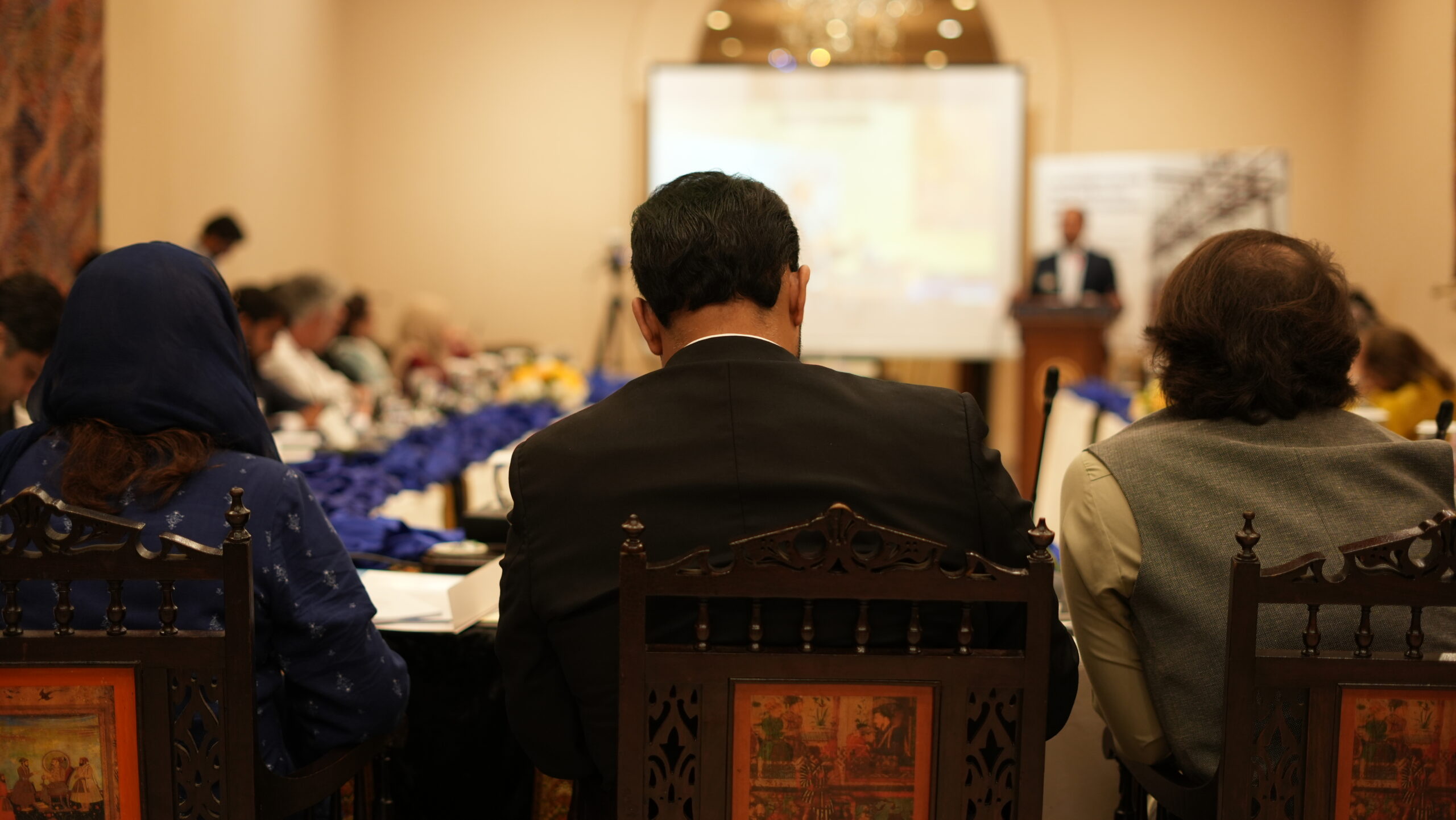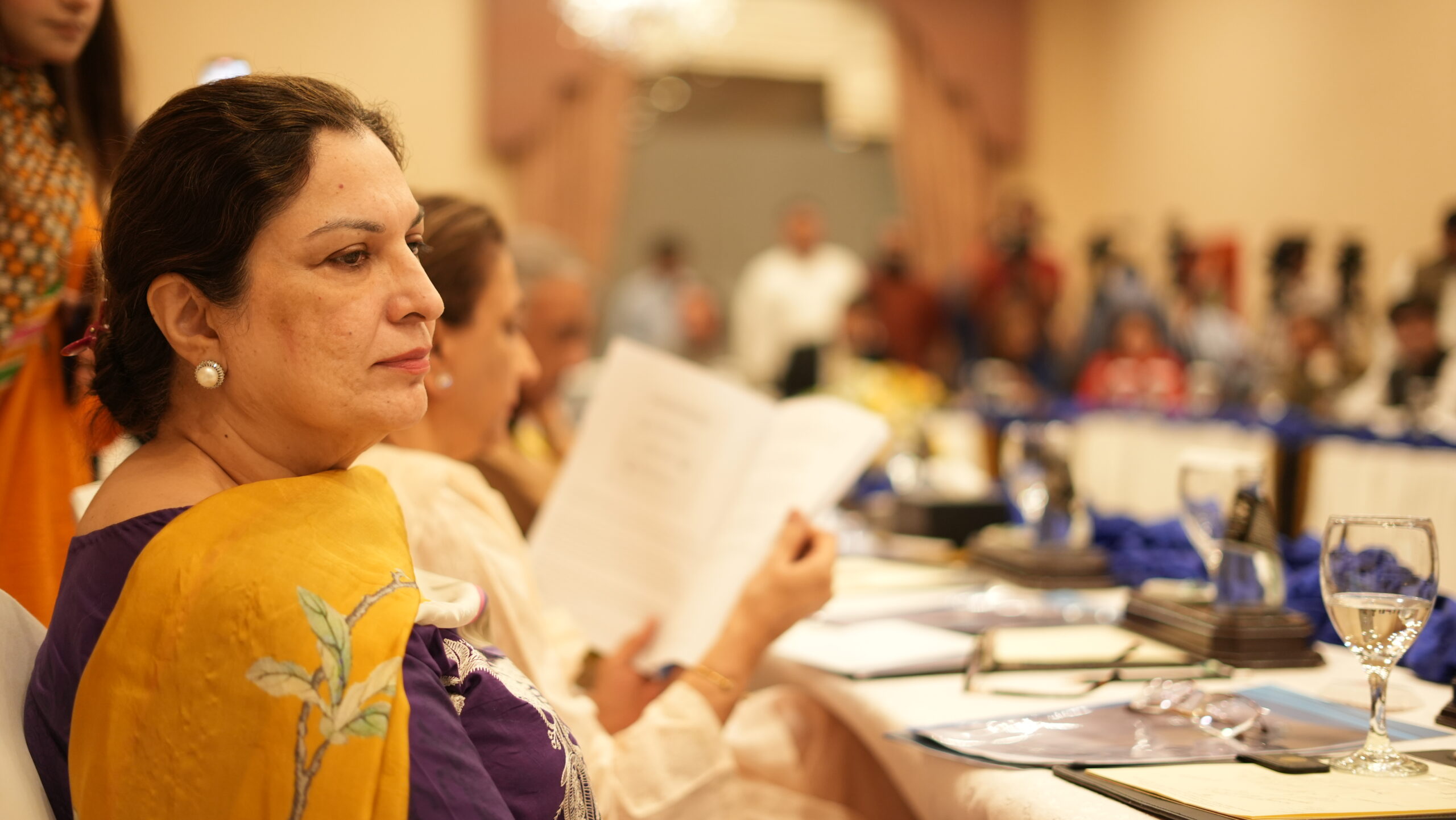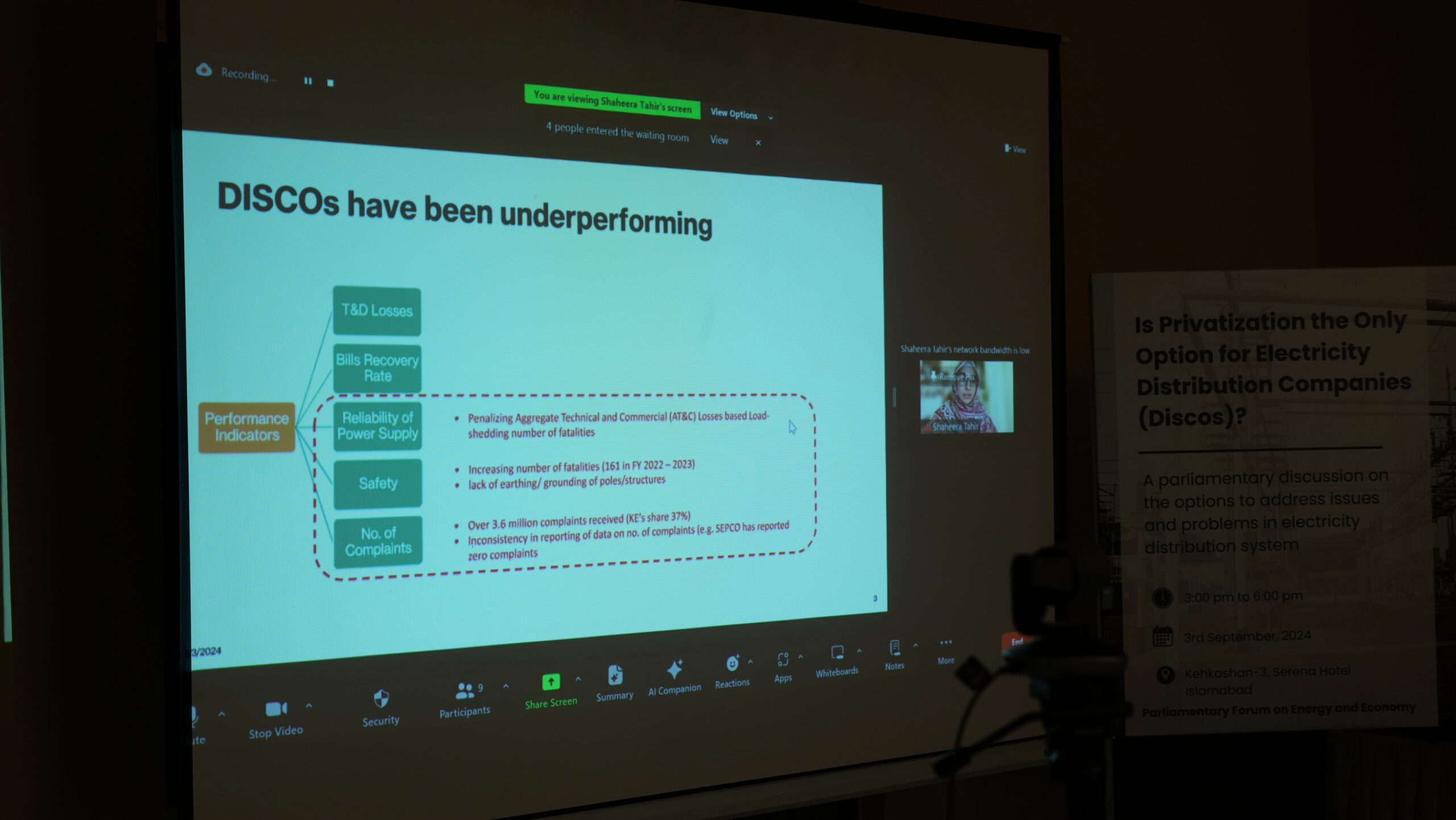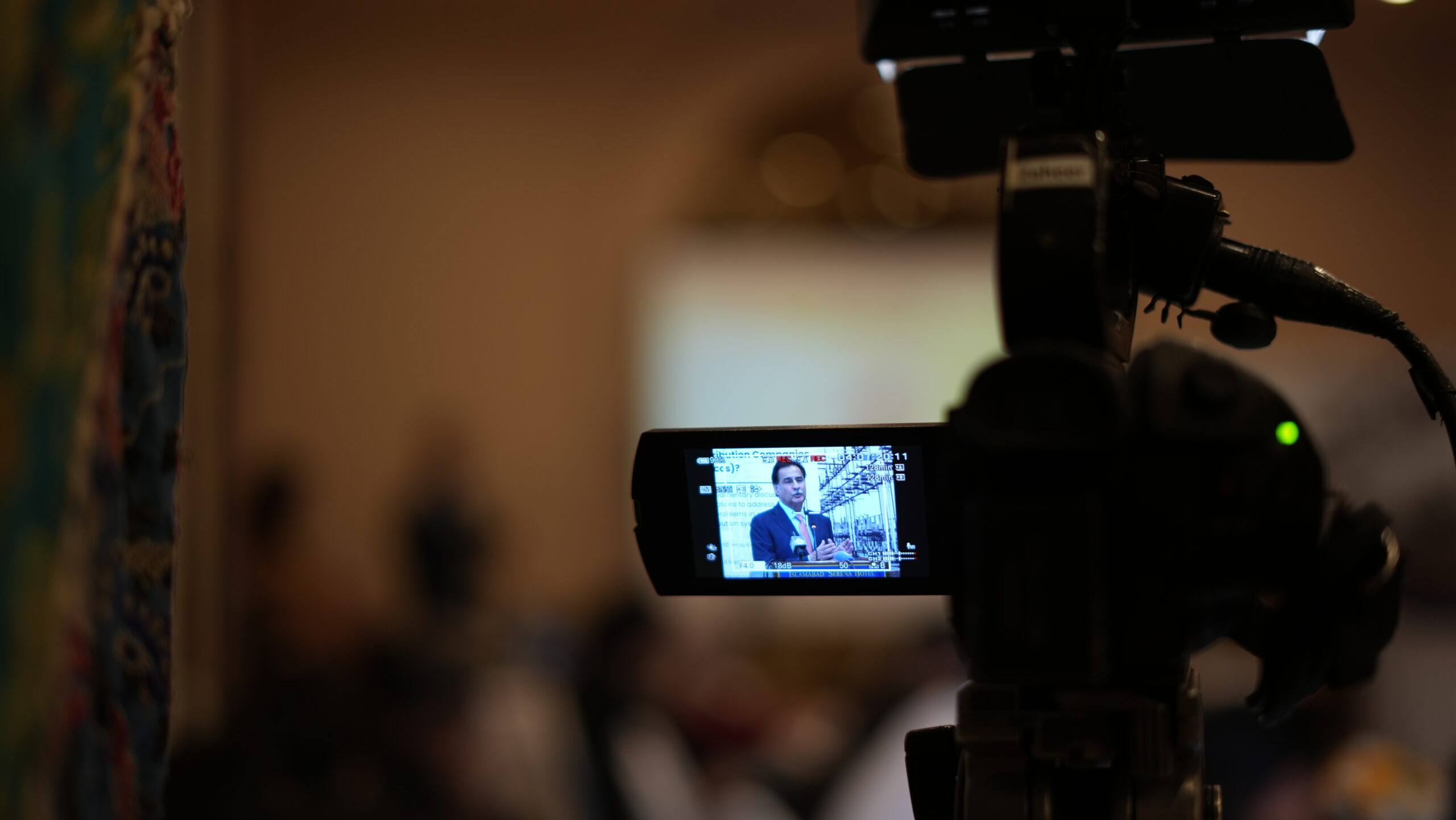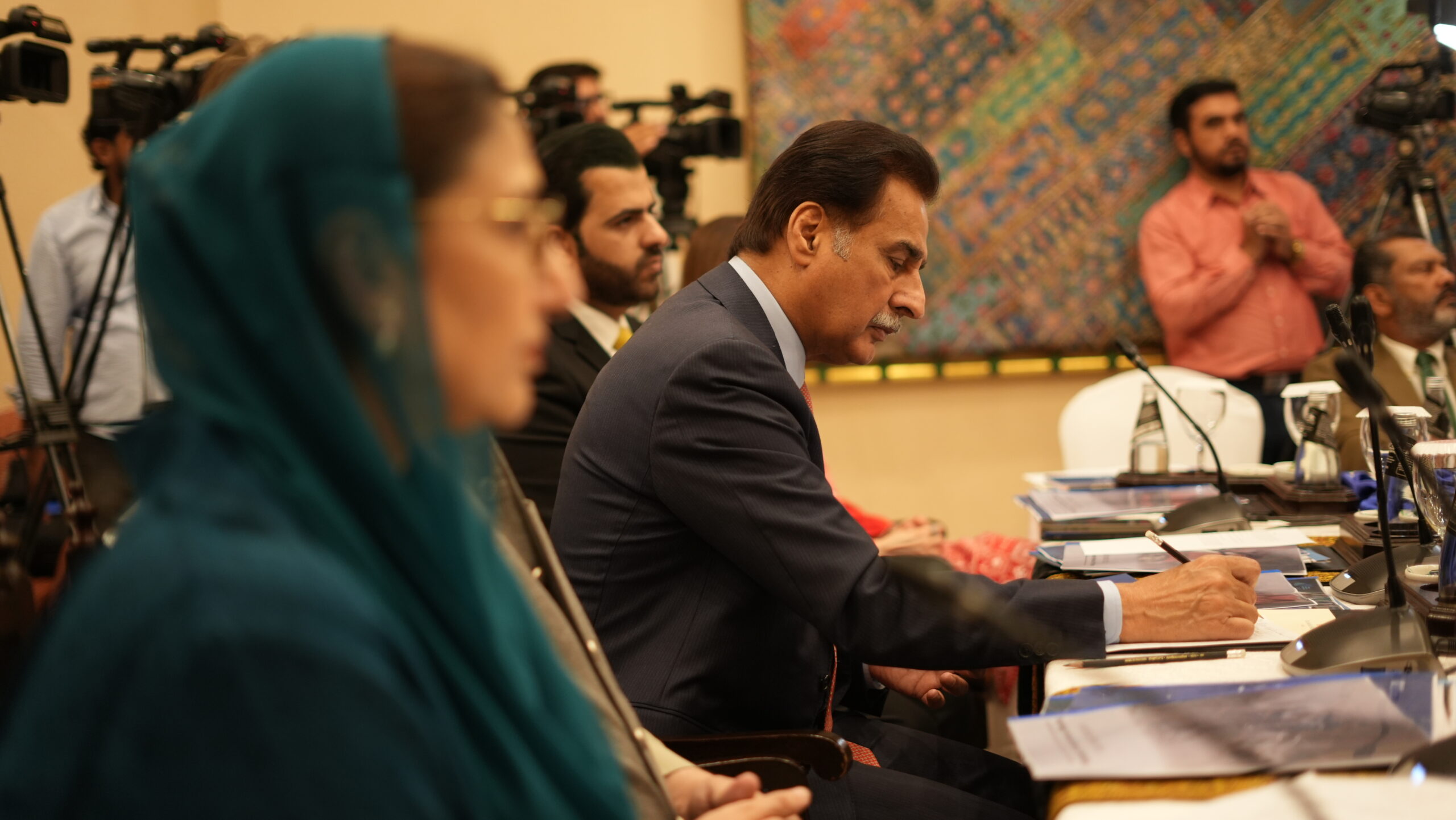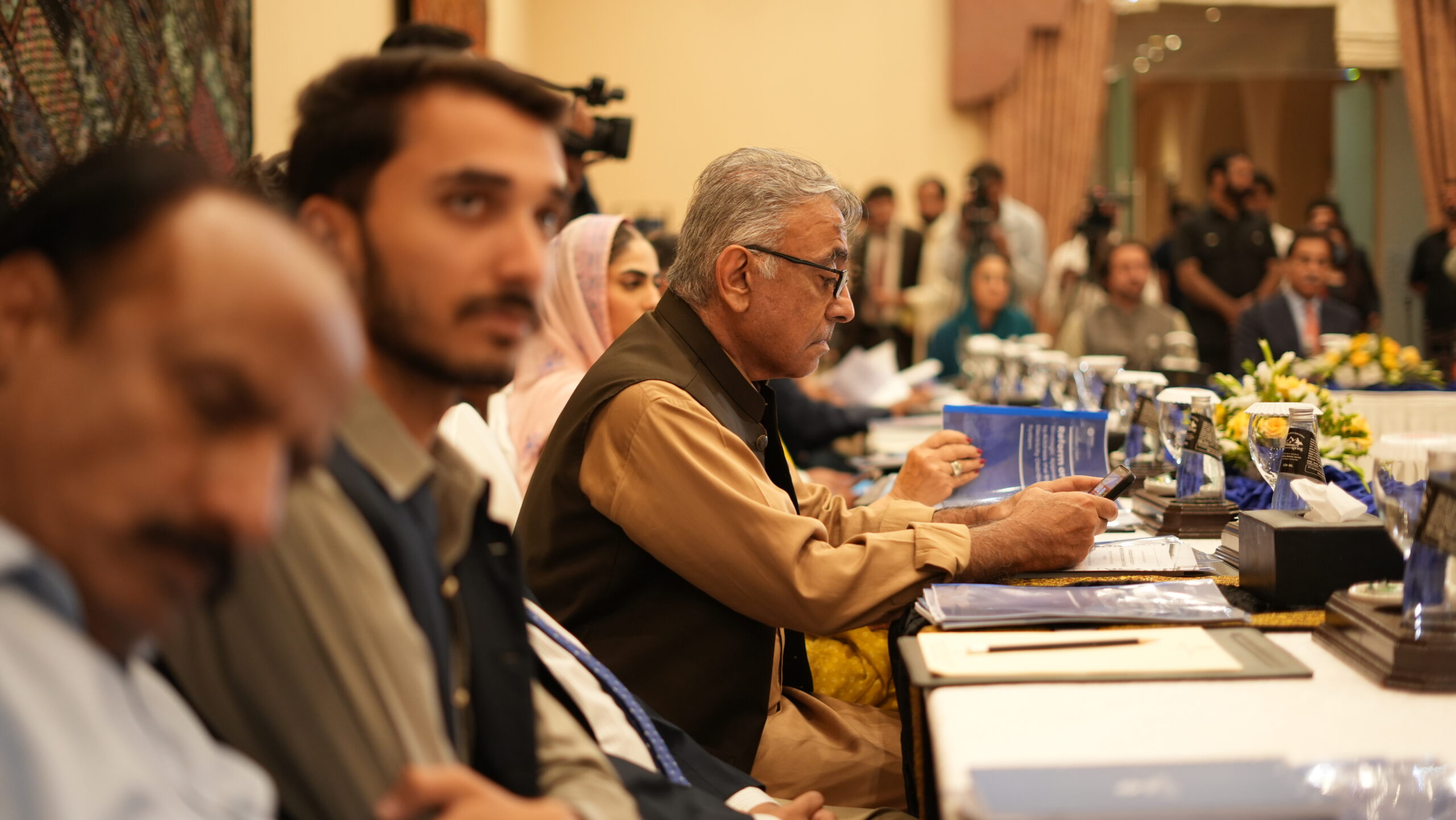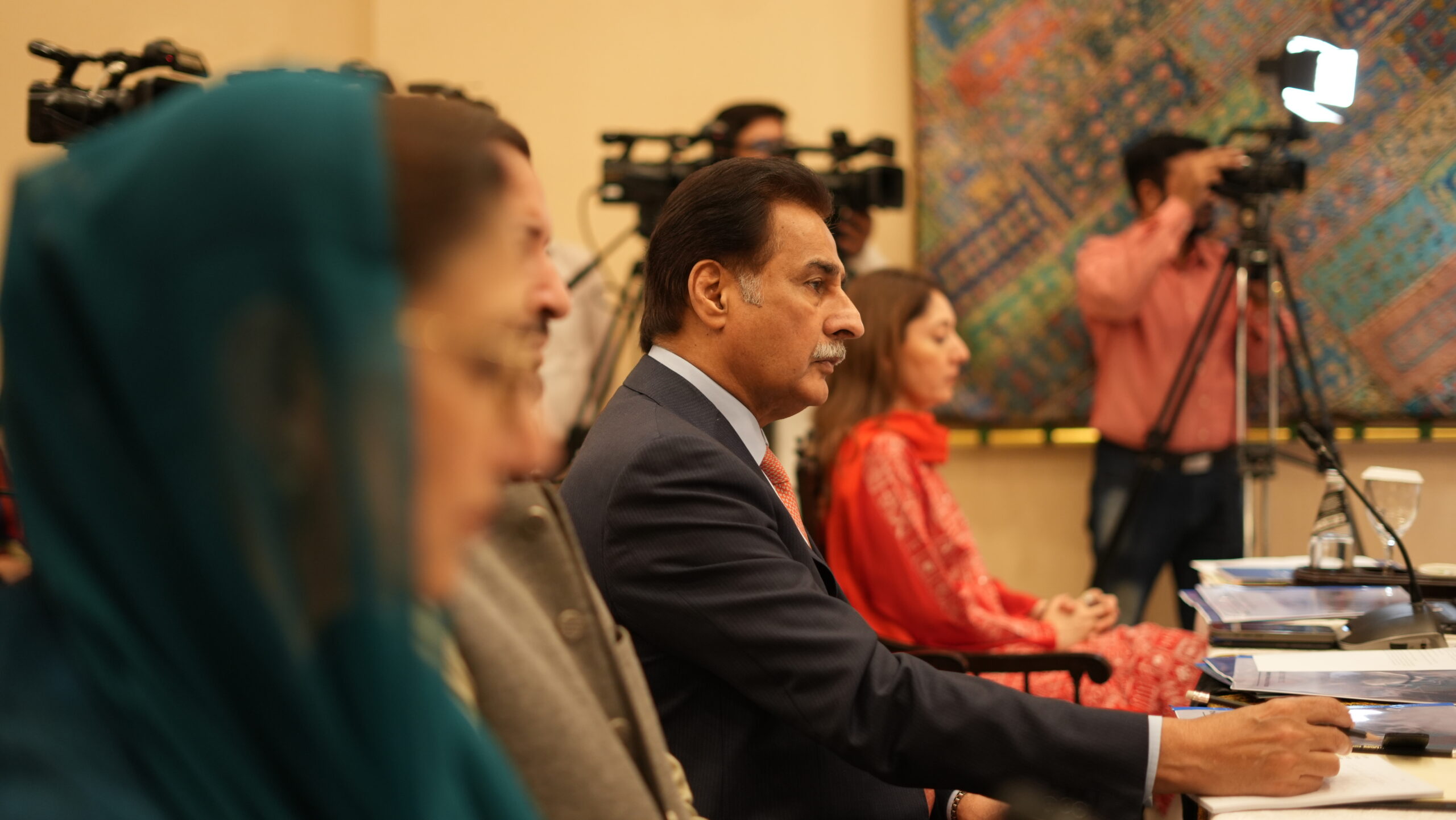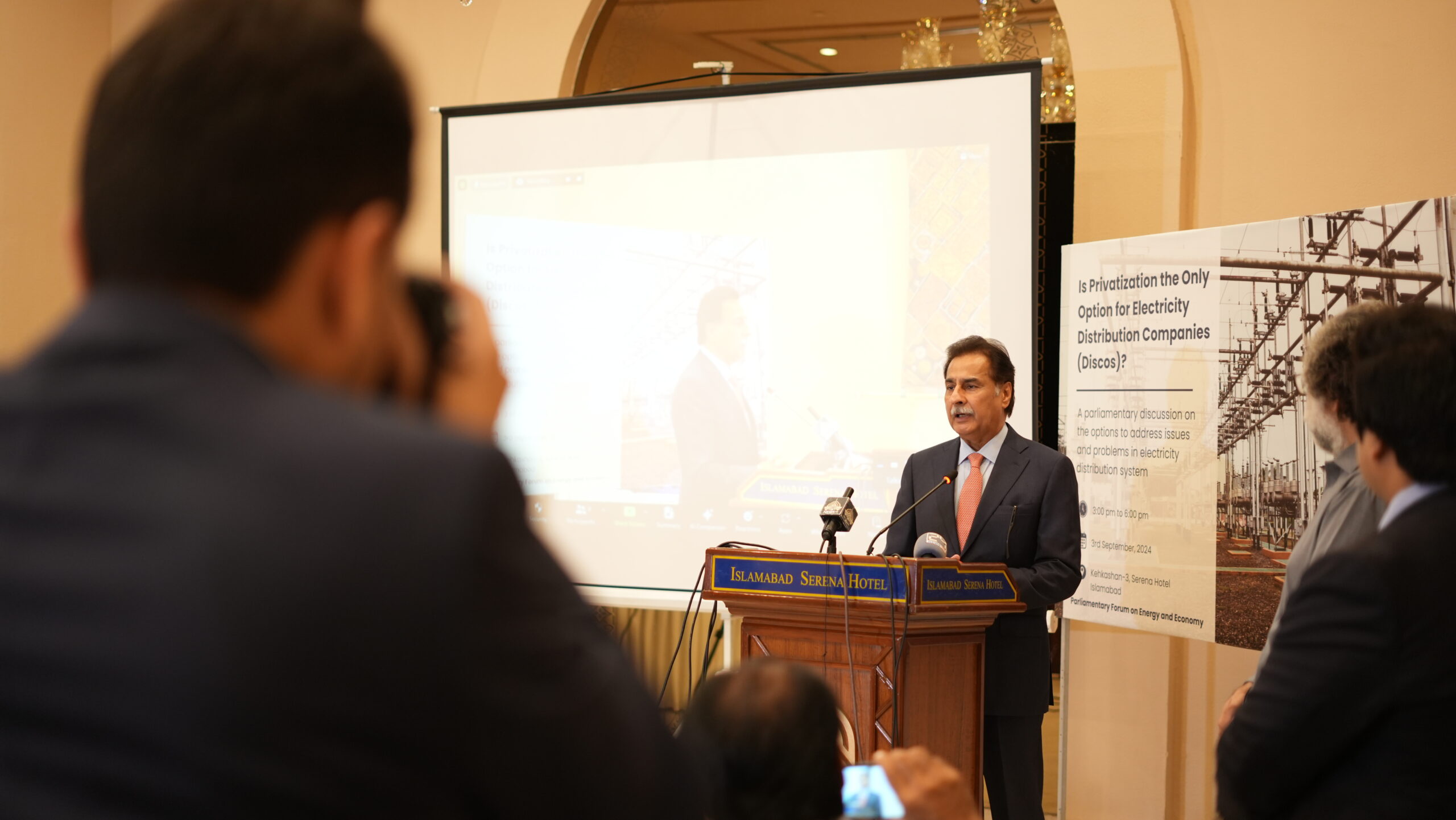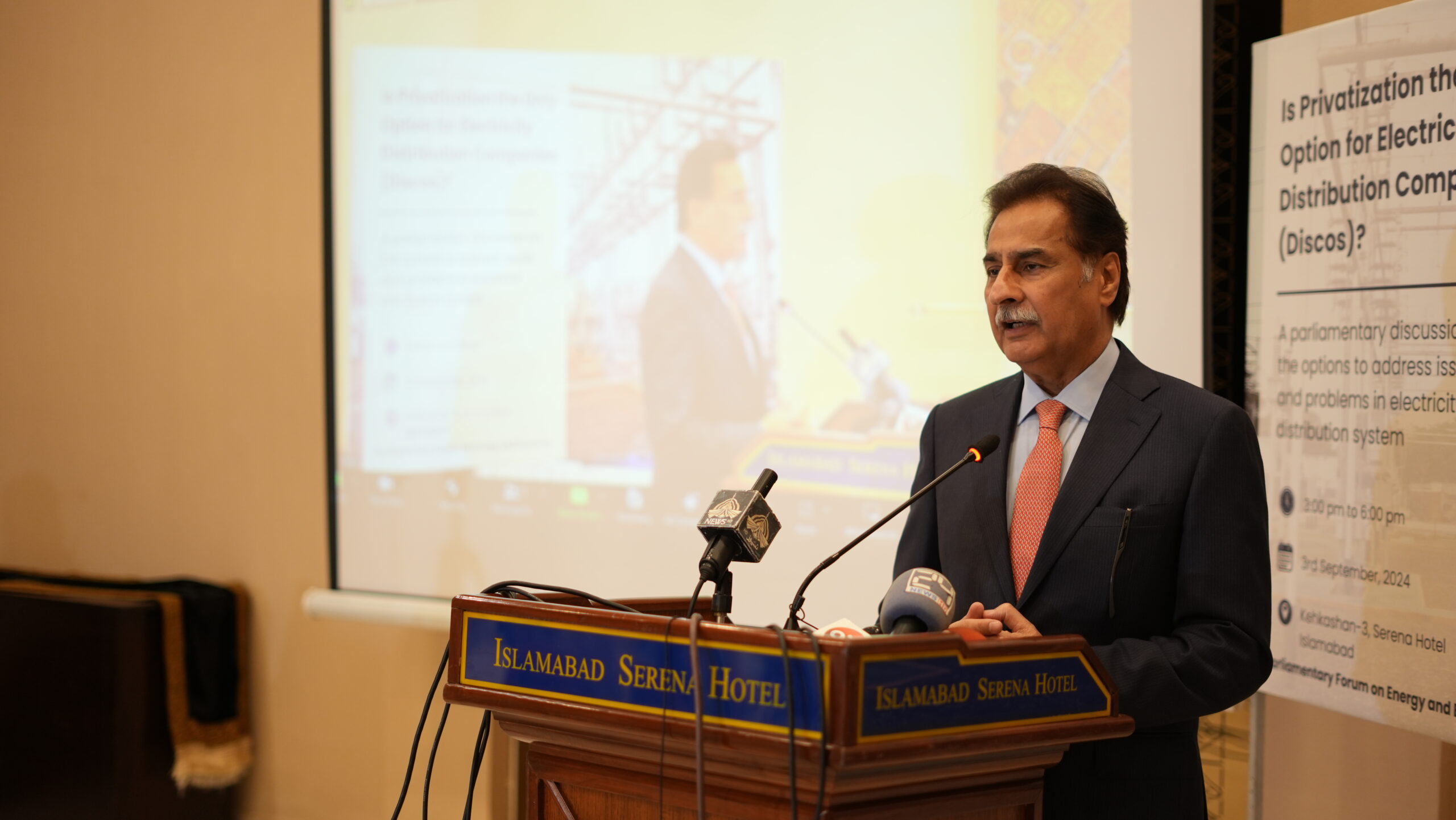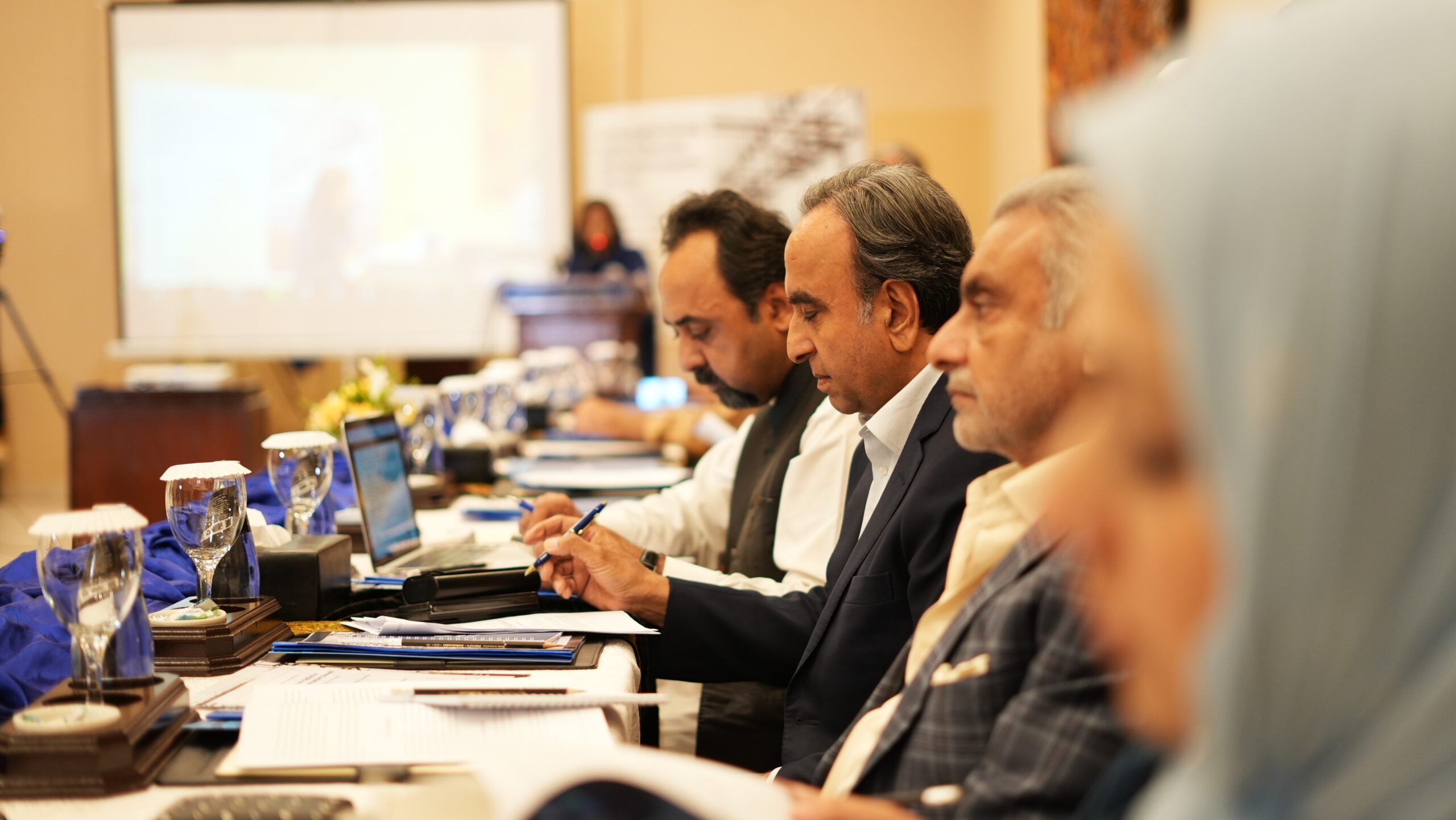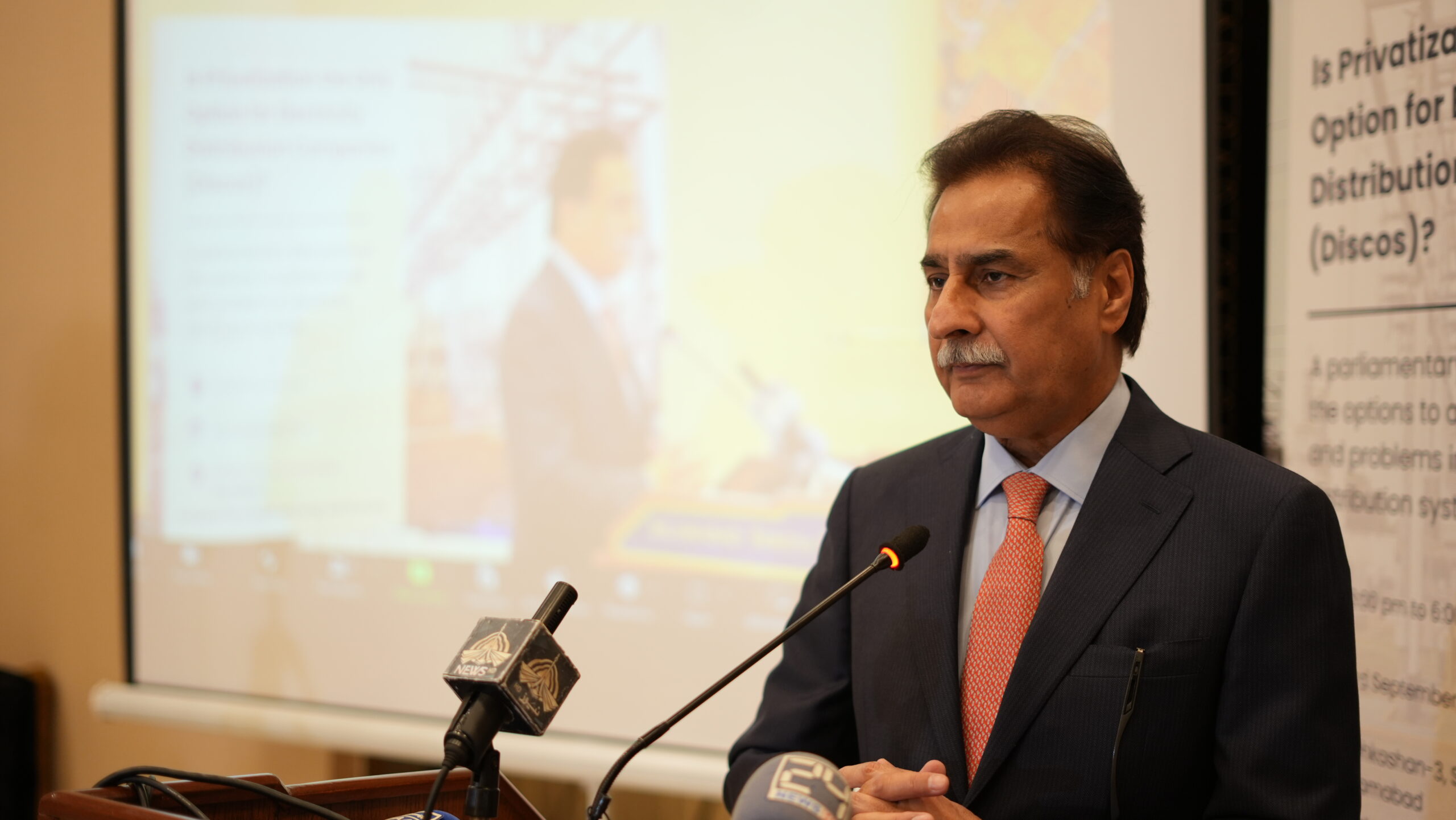Events
Date: 3rd September, 2024Is privatization the only option for distribution companies (DISCOs)?
- Concept Note
- Press Release
- Images
The Parliamentary Forum on Energy and Economy is a cross-party group of parliamentarians that aims to provide a platform for open discussion, research-based debate and interaction among members, experts, policy makers and most importantly citizens focused on serious, chronic and crippling challenges that Pakistan confronts in energy and economy today. We believe that this interaction and discussion across party lines and involving citizens and stakeholders will better inform both parliamentarians and policy makers in their respective domains and contribute towards possible solutions. As a first step in this direction, as the Federal Government is moving towards privatization of electricity companies, the forum is organizing a parliamentary consultation on whether privatization is the only option or whether there are other governance reforms to improve the performance of its Discos. But before moving ahead to inform you about the detailed program of this event, it is important for us to understand how Discos have arrived at the current impasse. Their story has its origin in the transmission and distribution losses which Pakistan’s electricity system suffers from and which are among the highest in the world. Caused by a combination of theft, poor infrastructure, faulty metering outdated equipment and other socio-cultural and economic factors, these losses have made the national grid very fragile both technically and financially and contributed significantly to the electricity’s massive circular debt of more than 2.5 trillion rupees. To address this Achille’s heel of the power sector, Water and Power Development Authority (Wapda) was unbundled in the 1990s and several distinct entities including eight distribution companies were carved out of it. These companies were given the responsibility to deliver electricity to consumers and recover bills from them in their respective areas. More than two decades later, they themselves have become a part of the problem they were made to address. They are struggling to improve their administrative and financial capacities and are reeling under untenable electricity and financial losses. Their poor performance has become such a huge burden on the national exchequer that no initiatives to improve Pakistan’s economy in general and its energy sector in particular can succeed without first doing something about these companies. Pakistan’s international development partners, particularly the World Bank and the International Monetary Fund (IMF) insist that privatization is the only option to improve the state of affairs of Discos. The government seems to agree with them. We, however, believe that the decision to privatize them is too important to be taken in haste and without a thorough, honest and evidence-based debate within the parliament and in the public arena. In the absence of such a debate, we run the risk of making decisions which we might be regretting a few years later – just as we have witnessed with the privatization of K-Electric. It not just provides its consumers with the costliest electricity in the country, it also still requires and receives state subsidies worth hundreds of billions of rupees in order to keep itself running.
- Speakers emphasize reformation and restructuring of DISCOs at seminar
- PPP, privatisation, or ‘provincialisation’: parliamentary forum debates solutions for inefficient DISCOs
- Privatisation Crucial for Reforming DISCOs: Experts Advocate KE Model for Better Governance
- Parliamentarians advocate urgent reforms in Discos
- “Parliament is committed to building consensus across party lines for tackling collective challenges like the Energy Crisis”, Says NA Speaker Sardar Ayaz Sadiq

